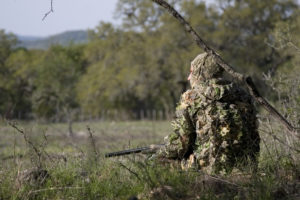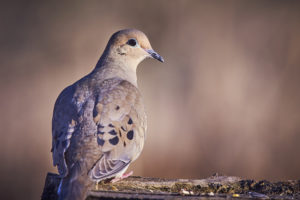Texas A&M Forest Service: 42% of wildfires occur during major hunting season months
Texas A&M Forest Service reminds Texans to be careful with activities that may cause a wildfire this hunting season.

The general season for white-tailed deer hunting opened Nov. 5 for all but the two westernmost counties in Texas.
From 2017 to 2021, Texas A&M Forest Service responded to 3,682 wildfires that burned 1.4 million acres. During that time, 42% of wildfires occurred during the major hunting season months of September through January.
“Texas A&M Forest Service wants all hunters to be safe this season,” said Karen Stafford, Texas A&M Forest Service State Wildfire Prevention Program leader. “We all have a role to play in protecting our state from wildfires, so remember to do your part and don’t let a wildfire start.”
Nine out of 10 wildfires in Texas are human-caused, and 65% of wildfires that occur during hunting season are caused by debris burning and equipment use, which includes parking in dry grass and dragging trailer chains.
Tips to avoid wildfires
Recent rainfall has helped increase the amount of moisture in vegetation across the Texas landscape and reduced wildfire activity.
But even when wildfire activity is low, the possibility of an ignition is a concern. It only takes one spark to start a wildfire, and hunters are encouraged to be cautious outdoors.
Some tips to help avoid starting a wildfire while hunting and camping this fall include:
- Avoid driving over and parking on dry grass. The heat from your vehicle can easily ignite the grass.
- Always check with local officials for burn bans or other outdoor burning restrictions. Each county in Texas sets and lifts their own burn bans. Make sure you know your county’s burn ban status and if it restricts open flames and other heat-causing activities such as using charcoal. View the latest burn ban map here: https://tfsweb.tamu.edu/burnbans/.
- Never leave a cooking fire or campfire unattended, and always make sure it is completely out by drowning it, stirring it and feeling to ensure that it is out cold before you leave.
- When taking a trailer out on your adventures, make sure that the tires are properly inflated, chains will not contact the road and that any loose metal will not continually hit anything else, all which can cause sparks.
- Always be ready to put out a fire should one start. Have a shovel and water with you in camp and have a fire extinguisher with you at all times.
For additional information about preventing wildfires this hunting season, visit https://tfsweb.tamu.edu/HuntingFireSafety/.
-30-
The post “Hunters urged to practice wildfire safety” first appeared on AgriLife Today.
